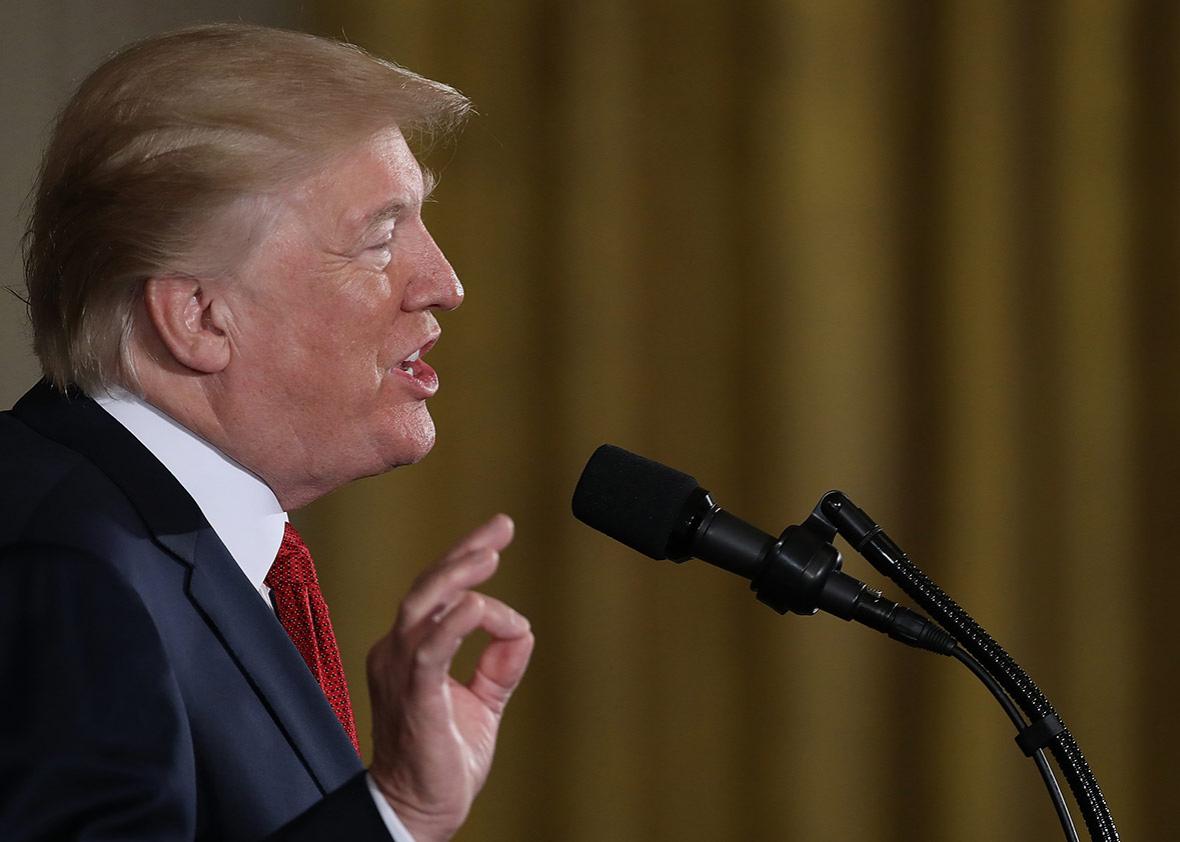On Thursday afternoon, Donald Trump announced his “plan” to tackle the opioid epidemic. The solution, he suggested, is to spend more money telling people not to use drugs. To bolster this fresh and innovative idea, he told the story of how his older brother, Fred, an alcoholic who died at age 43, convinced Trump, a teetotaler whose name is on a vineyard, to never pick up a drink, simply by telling him not to. If only someone had thought about this approach before!
This anecdote makes clear that Trump doesn’t understand how addiction works, how people struggling with it suffer from the push-pull of wanting to avoid dope sickness while also wanting desperately to get clean, how poverty and trauma and myriad other problems can make a person vulnerable. Perhaps his advisers tried to educate him, with simple policy briefings heavy on charts. This section of the speech, with all the telltale signs that Trump was careening off script, shows that clearly, it didn’t work.
But there is a way to get through to Trump, using a medium he understands: reality TV. Trump needs to spend a few hours watching Intervention.
Intervention debuted on A&E in 2005 and has been airing ever since (except for a hiatus from 2013–15). The show’s formula hasn’t changed much in that time: It profiles one or two people per episode, focusing on how a person’s substance abuse, eating disorder, or other problem has created havoc for them and for their families.
The show goes deep into the subjects’ backstories to find the root of the addiction: sexual or physical abuse, early psychological problems, traumatic events. (One particularly horrifying episode focused on a man whose mother had kept a miscarried fetus in a jar in their closet when he was young.) As with any reality show, Intervention can oversimplify the causes of addiction—the show always seems to want to point to one thing that damaged a person, likely because it’s good for its format. But this is Trump we’re talking about. We don’t have time for any nuance.
Even while flattening some of the complications around addiction, Intervention successfully explains how addiction seeps into a family or a community, creating a vortex of guilt, anger, recrimination, and grief that touches everyone. When the show’s titular event, the intervention, comes, family members read aloud letters that often begin with, “Your addiction has affected me in the following ways.”
Most importantly, though, Intervention demonstrates that there are no easy answers. You can’t simply tell people, “Don’t do it.” Even addicts who go to treatment gratefully, with their care covered entirely by the show, often fail to get clean the first, second, or third time around. Sometimes they never recover; a long, sad list of Intervention addicts have died, whether by overdose or in other ways connected to their addictions. One alcoholic got sober only to die of esophageal cancer 104 days after the intervention.
But! The show also gives hope. In 2006, Intervention aired an episode with Sylvia, a sweet but deeply troubled alcoholic who looked like she wasn’t going to live much longer. But Sylvia took the help that was offered, worked hard, and today she is one of the interventionists on the show. What’s more reality TV than a redemption story? And hope is a message Trump needs to hear. His remarks Thursday seemed focused on stopping children and teenagers from using opioids in the first place, suggesting he is inclined to just give up on the millions of people already suffering from addiction.
So Gen. Kelly, please add some episodes of Intervention to Trump’s beloved TiVo. The show has profiled many heroin and pain pill addicts, and that seems like an awfully good place to start.
